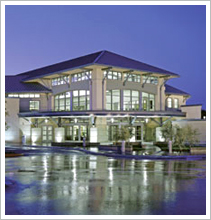 It may have been '95... perhaps '97. To be honest, I can't quite remember. The exact moment a grudge is born rarely avails itself to clean forensic examination. It was during the nursery rhyme days though. That much I know. I distinctly remember hearing the words, "I'm James Patterson, and you should read my book..." It was at that moment that I decided, "No James Patterson, I don't need to read your book." And I never did. Any of them.
It may have been '95... perhaps '97. To be honest, I can't quite remember. The exact moment a grudge is born rarely avails itself to clean forensic examination. It was during the nursery rhyme days though. That much I know. I distinctly remember hearing the words, "I'm James Patterson, and you should read my book..." It was at that moment that I decided, "No James Patterson, I don't need to read your book." And I never did. Any of them.Here's why: James Patterson had made a television commercial for his book. I'll repeat that so you can grasp the full tragedy of such an action. He made a TV commercial. For a book. A really bad commercial at that. He rhymes the whole thing. It's just mortifying. (Sadly, I can't find it on youtube, so you'll just have to take my word for it.)
I can only blame my disproportionate revulsion (not too strong a word should you be thinking it were) of this concept on a youthful and snobbish belief that books are somehow superior to other products. Books did not need commercials in the way that dish soap or breakfast cereal did. They weren't commodities, they were "literature." They were above that sort of cheap pandering. I can think of only one other book commercial I had ever seen up to that point. Take that as you will.
Looking back on Patterson's astronomical success, it's pretty obvious that the marketing plan worked. Those commercials helped him hock millions of books over the years. At this point, he's so busy counting his money, he can't even be bothered to write a full book by himself. And while the quality of his commercials have gotten better, his delivery of cringe-worthy tag lines is as wooden as ever. It's almost charming now. Almost.
Like it or not, books are commodities just like any other product. And like other products, they need some sort of advertising in order to get them out of the warehouse and into your hands. For the most part, publishers do so with the cunning use of book reviews.
A book review doesn't trigger the brain's advertising defense the way a full page magazine ad or a movie trailer does. Instead, we see them as authoritative quality checks. Think about Consumer Reports magazine. Isn't that the best advertising for a product ever? Not only does it tell you about the item, it supplies a trustworthy voice to give it an endorsement. Book reviews serve the same purpose. Most authors would give their first child to have New York Times favorably review their book. Or, for that matter, have Oprah mention it even in passing. (Her power may be waning in that realm without the talk show these days.)
Some books have less subtle marketing tactics. Enter Erin Morgenstern's The Night Circus. I'd first heard about this book a few months ago. The article made a cursory mention of its plot (magical circus at the turn of the century, good and evil, rivals fall in love) and then spent the rest of the time talking about how it would be a bestseller. This was in July mind you. The book was just released last week. How would they know it would be a bestseller?
It would be a bestseller because every time someone mentioned it between then and now, they talked about how it would be a bestseller. A brute force tactic, not delicate in the least, but it's highly effective. Guess what? The Night Circus has become a bestseller. Predicated on nothing but word of mouth and hype.
The official Amazon.com review is 6 vague sentences followed by 23 blurbs from big name people telling you how much you'll love this book. Well, of course you're interested in reading it now. Every person under the sun has told you that you need to. That you'll love it. How could you resist? You put in an order and wait to receive it. Then you read it and...
That's the tricky part with such a super positive campaign. What people know about this book is that it will be their new favorite. That don't have much else to go on. But what if it's not? Hype is a dangerous thing. If you hype something that deserves it, you've created a juggernaut. If you hype something that doesn't live up to expectations, you've created an unmitigated disaster. A bad or even just okay book that's over hyped easily tips into becoming a hated book. And that's scary considering this is Morgenstern's first. This could lead to the sound of a long career crashing out of the gates, or the delicate crush of a broken dream.
All that is not to pass any judgement upon The Night Circus itself. I, like so many others, am excited to read it. (I'm waiting in the hold queue currently.) Being a fan of both old timey circuses and magic, it seems like it should be enjoyable. I've also heard that despite the hype, it's an extremely well written book (or is that also part of the hype... it's hard to tell). I really want to like this book. I really do.
Even if they did make a commercial for it.
posted by jw

